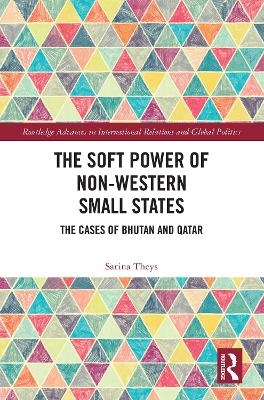
The Soft Power of Non-Western Small States
Routledge (Verlag)
978-1-032-55206-4 (ISBN)
This book critically engages with the concepts of small states and soft power and advances a new approach to defining small states, a new conceptualisation of soft power, and a method for empirically analysing the exercise of soft power. It revisits the concepts of small states and soft power with a focus on Bhutan and Qatar and their approach to exercise soft power to achieve their foreign policy goals.
Building on two main perspectives to define small states – the objective approach and the subjective perspective – this book offers an intersubjective approach to define states as small. The intersubjective approach requires a shared understanding between states that a certain state is small. The book further highlights the importance of deconstructing the meaning of size and to separate the notion of size from the concept of power because size is not always indicative of power. It argues that although small states tend to have fewer material resources than large states, they nevertheless can have influence through the exercise of soft power. Soft power is in this book defined as the ability of an actor to convince another actor that something is true. Convincing deals with the beliefs of an actor and is a mental decision rather than a physical action. This book argues that the exercise of soft power can be analysed through examining the development, projection, and reception of identities. The findings of this book show that Bhutan was more successful than Qatar in exercising soft power and explains the reasons for this variation.
Aimed at a multidisciplinary audience, this book will be of particular interest to practitioners, scholars, and students of International Relations, Political Power, Small States, and Area Studies.
Sarina Theys is Lecturer in Diplomacy and International Affairs in the School of Law and Social Sciences at the University of the South Pacific in Fiji. Her research interests include international relations, security and political power of non-Western small states and Pacific island states, and environmental and climate change in the Pacific. Her research has been published in International Affairs, International Environmental Agreement: Politics, Law and Economics, Journal of International Affairs, Nature Climate Change, and the Comparative Law Journal of the Pacific.
List of Diagrams
List of Illustrations
Acknowledgements
List of Abbreviations
1 Introduction
PART I: SMALL STATES AND SOFT POWER IN INTERNATIONAL RELATIONS
2 Small States in International Relations
3 Soft Power in International Relations
PART II: BHUTAN, QATAR, AND SOFT POWER EXERCISE
4 Bhutan
5 Qatar
PART III: COMPARATIVE INSIGHTS AND CONCLUSION
6 Bhutan, Qatar, and Soft Power
7 Conclusion
Bibliography
Index
| Erscheinungsdatum | 25.07.2024 |
|---|---|
| Reihe/Serie | Routledge Advances in International Relations and Global Politics |
| Zusatzinfo | 6 Tables, black and white; 3 Line drawings, black and white; 3 Illustrations, black and white |
| Verlagsort | London |
| Sprache | englisch |
| Maße | 156 x 234 mm |
| Gewicht | 471 g |
| Themenwelt | Sozialwissenschaften ► Politik / Verwaltung ► Europäische / Internationale Politik |
| Sozialwissenschaften ► Soziologie ► Spezielle Soziologien | |
| ISBN-10 | 1-032-55206-9 / 1032552069 |
| ISBN-13 | 978-1-032-55206-4 / 9781032552064 |
| Zustand | Neuware |
| Haben Sie eine Frage zum Produkt? |
aus dem Bereich


